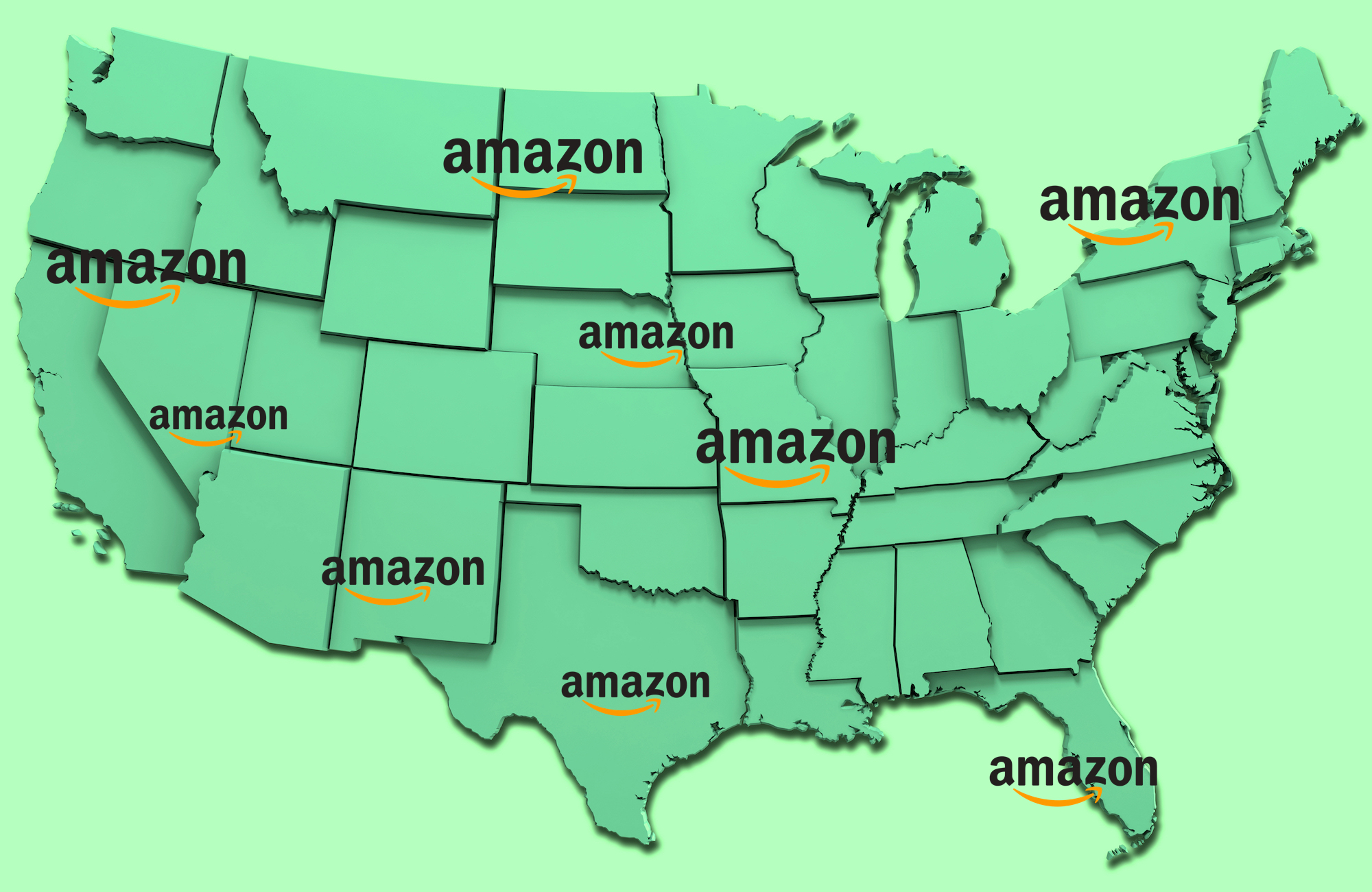Cities Are Competing to Give Amazon the ‘Mother of All Civic Giveaways’

Credit to Author: Louise Matsakis| Date: Tue, 19 Sep 2017 15:05:29 +0000
Amazon announced earlier this month that it was looking to build a second headquarters outside Seattle, where more than 40,000 of the company’s more than 380,000 employees currently work. The tech giant is searching for a locale with at least a million people, a diverse population, and excellent schools, among other qualifications. It gave municipalities six weeks—until October 19—to submit a proposal to be chosen.
Local governments in more than 100 American and Canadian cities, including places like San Diego, Chicago, Dallas, and Detroit, quickly scrambled to outline why they should be home to Amazon’s new corporate office, which is expected to employ up to 50,000 workers. The mayor of Washington D.C., Muriel Bowser, even made a scripted video for Amazon explaining why the capital should be picked. It featured an Echo, Amazon’s smart speaker.
But experts who have studied Amazon’s business practices say having one of the most tax-allergic corporations in the world come to your hometown might not actually be a good thing.
“It’s an intoxicating proposition to detonate an Amazon prosperity bomb in the center of their city,” Scott Galloway, a marketing professor at New York University and the author of The Four: The Hidden DNA of Amazon, Apple, Facebook, and Google, told me on a phone call. But “this has the potential to be destructive on the wrong terms for the local municipality.”
When Amazon has set up outposts in cities across the U.S in the past, (like other large corporations) it’s often received astronomical economic incentives from local governments. The retail giant received at least $613 million in public subsidies for warehouses it built from 2005 to 2014, according to a 2016 report published by the Institute for Local Self-Reliance, a research group that advocates for local solutions for community development. The company raked in another $147 million in subsidies for its data centers during the same period, the report found.
“Amazon has made securing public handouts a core part of its business strategy from the very beginning,” Stacy Mitchell, a co-director of the Institute for Local Self-Reliance and a co-author of the report told me on a phone call. “We tend to look at Amazon and think they’ve become this force in the economy because they’re innovative, lost in that there’s this other reason: They’ve been heavily supported by government.”
There’s evidence indicating Amazon won’t create its second headquarters in a city without economic incentives. As part of its proposal guidelines, Amazon noted that “special incentive legislation” may be required “for the state/province to achieve a competitive incentive proposal.”
“What this means is that Amazon is looking for a subsidy of such magnitude that the [legislative] tools will have to be rewritten to accommodate it,” Mitchell said. “It just illustrates the fact that we are preparing to bend the rules to the point of breaking in order to fulfill Amazon’s requests while all the other businesses competing in the economy are left on their own.”
Large corporations and other groups often receive tax breaks for coming to or remaining in a city. Sports teams are infamous for holding cities hostage with the threat of relocation until they are able to secure sweetheart stadium deals that are frequently subsidized by millions of dollars of taxpayer money. In exchange, cities are promised an increase in jobs and economic prosperity, which often doesn’t happen. Cities appear particularly interested in luring big tech. For instance, Pittsburgh’s mayor helped Uber evade a fine levied by the state for ignoring its regulations. But Galloway says the 100-city Amazon headquarters sweepstakes seems like it’s on another level.
“I think this is going to be the mother of all civic giveaways,” he said.
One of the key reasons cities are so excited by the idea of Amazon arriving in their town is the promise it’ll bring 50,000 news jobs with it. Mitchell believes, however, that many of those positions will likely be filled by specially trained professionals arriving from other places. “For people who live there [in the chosen city] most of them will not see any increase in their income,” Mitchell said. “They will see a big increase in their rent.”
More broadly, Amazon as an entity has often eliminated jobs in the United States rather than created them, according to the Institute for Self-Reliance’s report. It has erased around 150,000 more jobs than it’s made, it found. It accomplished that feat by displacing jobs at brick-and-mortar retail stores—the backbone of any city’s downtown.
Cities and towns largely rely on sales and real estate taxes generated by local businesses in order to fund their schools, roads, libraries, and other public services. But many small shops and stores are going out of business nationwide because they’re unable to compete with Amazon. The retail giant has caused more than 135 million square feet of retail space in the United States to become vacant, according to the same report. Amazon did not immediately return a request for comment.
Cities competing to attract Amazon’s jobs are also largely ignoring other problems its presence could cause. No one understands this better than Seattle, where Amazon already resides. The company’s presence has caused it to grow more wealthy, but it’s also had unintended consequences, like soaring housing costs, widening inequality, and an increase in traffic.
By turning its search for a new headquarters into a competition, Amazon has pitted North American cities against each other in a race to amass the largest corporate subsidy it can.
“It’s unfortunate that there are such deep structural problems in the economy that cities feel like giving away a bunch of tax dollars to a wealthy corporation is their only option,” Mitchell said. “I would not want to be that headquarters city.”